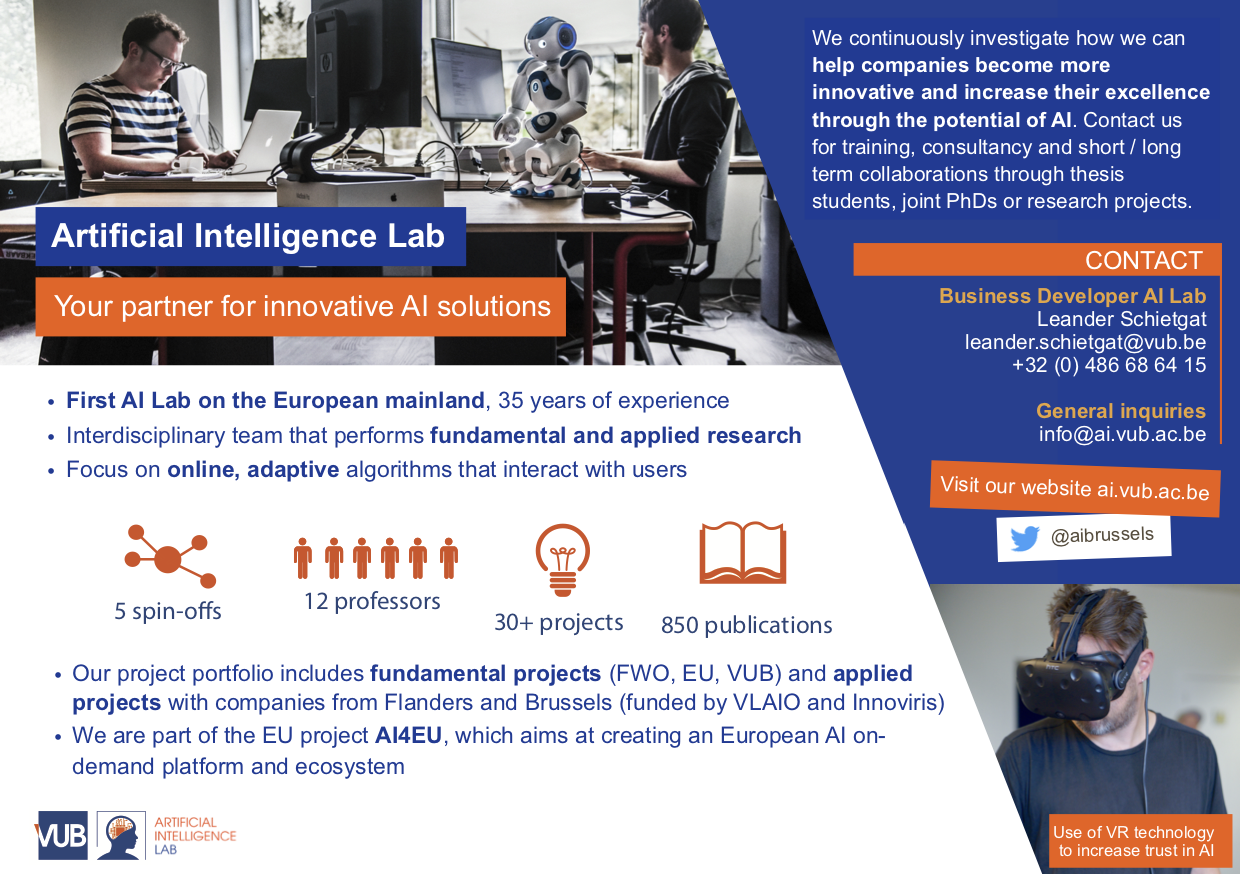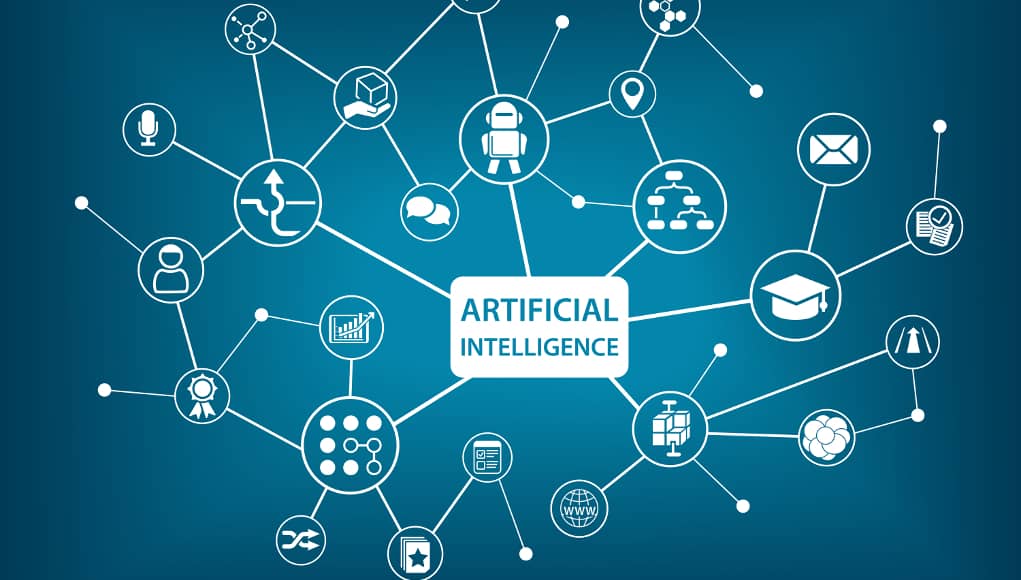How can we help you? Contact us for more information on research collaborations, services and trainings.
The cross-faculty Artificial Intelligence Lab is a consortium of 3 VUB research groups collaborating on responsible AI. The Artificial Intelligence Lab, founded in 1983, is the first AI lab on the European mainland. The key topics of the AI Lab are reinforcement learning, multi-agent systems, language processing, knowledge representation and reasoning, data mining, game theory, computational creativity and computational biology. The Digital Mathematics group specializes in applied mathematics based on a solid foundation of interplay with various areas of pure mathematics. The focus lies on the mathematical foundations for digital data acquisition, representation, analysis, communication, security and forensics. The Data Analytics Lab combines fundamental and algorithmic expertise at the technological level with a profound business understanding and business-oriented systems approach.
The combined AI expertise of the consortium provides a unique range in AI topics and broad experience with AI applications in all industrial sectors. The consortium consists of around 55 researchers, of which 14 professors, and has had more than 20 applied projects in collaboration with industry partners over the last years. Its main application areas are cyber-physical systems, human-computer interaction and business analytics.
The VUB Data Analytics lab at the Faculty of Economics and Social Sciences and Solvay Business School is headed by prof. Wouter Verbeke and prof. Tias Guns. The lab has strong ties to the MOBI research group and collaborates with several academic and industrial partners. we are also member of the cross-faculty AI lab doing interdisciplinary research on Artificial Intelligence.
Our focus is on developing and adapting analytical tools and algorithms to take into account the operational setting, domain expertise and business requirements of the application at hand. This differs from the typical statistical or IT perspective, and takes into account the operational context; including impact on revenues, adherence to user requirements, interpretability and interaction with other systems.
Example application domains include demand forecasting, exploratory data analysis, credit risk modeling, constraint-based clustering, fraud detection and customer churn prediction.
Digital Mathematics (DIMA) specializes in applied mathematics based on a solid foundation of interplay with various areas of pure mathematics. We focus on the mathematical foundations for digital data representation, analysis, communication and security.
Research Tracks:
Applications:


Artificial Intelligence (AI) is said to be on the verge of causing a new industrial revolution. During the last decades, a series of breakthroughs, such as the increase in computing power, the ability to generate and store huge amounts of data, and the focus on well-defined problems have led to significant successes. Moreover, many AI applications such as autonomous cars, robots or healthcare systems are the result of recognizing the truly interdisciplinary character of AI and their development has depended on the close collaboration between computer scientists, engineers, mathematicians, doctors, sociologists, and others.
In the next years, AI is predicted to emerge in all industrial sectors, with investments likely to increase tenfold, creating huge economic and societal opportunities. A lot of countries are taking steps by increasing funding for fundamental research and investing in the training of new AI experts. Unfortunately, Belgium is lagging behind, as public nor private investments are on par with other countries such as the US, China, Canada, France or Sweden. Therefore, a lot of Belgian AI talent is being lost mainly to large US tech companies, who have the financial means and the research facilities to attract top-level researchers. Moreover, multiple studies predict a huge deficit of trained AI professionals in the coming years, which will only make the problem worse. Additionally, there is relatively little valorization of available AI expertise, while companies as well as the general public have a growing number of misconceptions about AI, leading to either overestimation or underestimation of its impact.